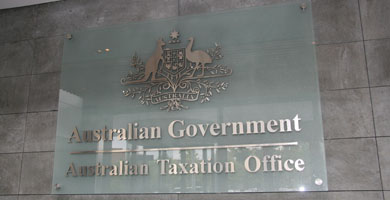ATO details Change Agenda delays

The Australian Taxation Office has issued a revised timetable for its $724 million Change Agenda IT refresh, which has recently been pushed back by 18 months.

(Credit: Liam Tung/ZDNet.com.au)
Lessons learned during the integration of the ATO's Fringe Benefits Tax product with its integrated core processing (ICP) system under Release 3, which occurred early last year, has prompted the agency to push back its final completion date.
"Experience from the fringe benefits tax deployment shows we should allow sufficient time for major changes to stabilise," the ATO said in a statement last Friday. Other factors included staff training, and the avoidance of change during lodgement periods.
Under the new timetable, the integration of superannuation co-contributions and superannuation holding accounts tax products have been scheduled to occur by March 2009, while the First Home Savers Account, which became available in October last year, has been set for integration by July 2009.
Less certain deadlines were given to the most complex components — general income tax and business activity statements — both likely due for completion by July 2010.
The ATO expects to rely on its legacy systems for the 2009 tax period, with 2010 pegged as the first year the ICP would provide the backbone for taxation processing.
In May 2008, the agency still expected to complete the Change Program by the end of the first quarter of 2009.
However, by September, following an internal review of Release 3 of the Change Program, the ATO's chief information officer, Bill Gibson told ZDNet.com.au that the new completion date for Release 3 would be 2010. In total, the program's deadline has been pushed back 18 months.
Gibson said the delay was largely due to legislative changes affecting the tax system, and new directions brought by the Rudd Government.
The ICP system is meant to replace a raft of legacy systems that are not adequately integrated, for example, with its case management and CRM systems. It is hoped the new system will provide ATO staff with a complete view of a client's transactions with the agency and real-time processing capabilities to enhance compliance with taxation rules.